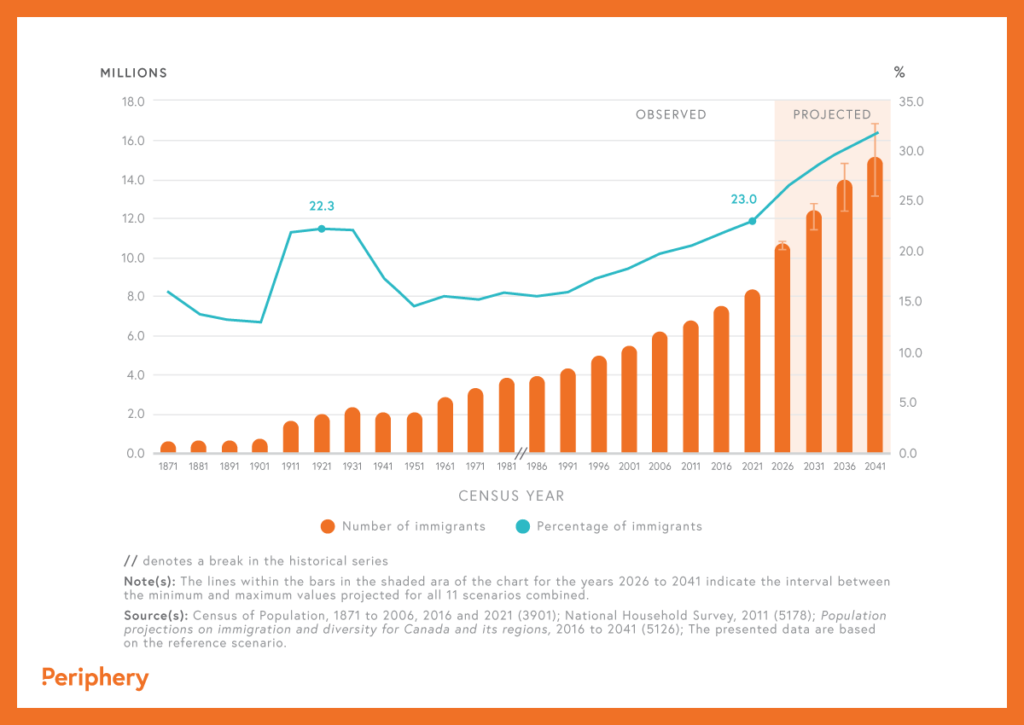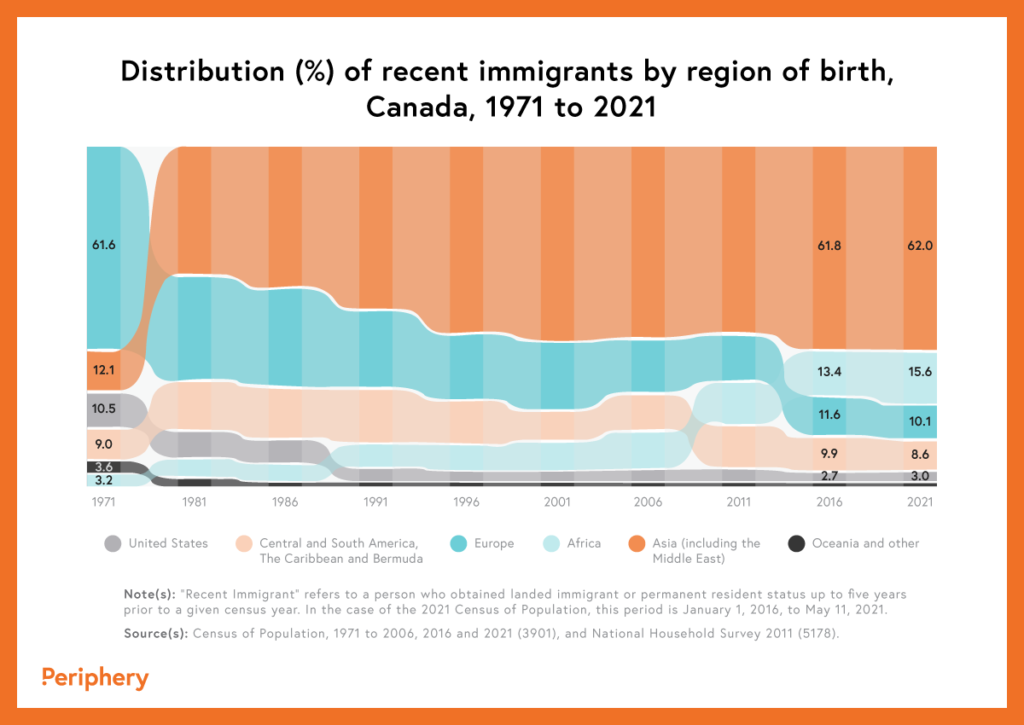The last census showed an increase in applications for study and work permits, with more people from Hong Kong moving to Canada. Let’s see how Hong Kong immigrants influence Canadian realtors!
Hong Kong Immigration History
Until 1997, Hong Kong was the highest-recorded source of Canadian immigrants. Before 1997, around 30,000 people immigrated from Hong Kong each year. Later years saw more immigrants from Mainland China, India, and the Philippines than from Hong Kong. Canada has been the top destination for immigration from these countries since 1997.
1997 was the end of Hong Kong’s status as a dependent territory, and many people left before it became part of Mainland China. Wary of the city changing hands, the immigrants who left Hong Kong pursued the relative economic and political stability in Canada.

Immigration to Canada slowed down after 1997, as people realized that things in the city were running fairly normal – thanks to the “One Country, Two Systems” agreement with China. Even though fewer Hong Kong residents left after the handover, those in Canada gained Canadian permanent residency at a rate of 1,500 each year. At first things went smoothly, but then political instability and the pandemic hit Hong Kong, causing many people to migrate.
Permanent Residence in Canada is Becoming Increasingly Accessible
The Canadian government implemented a temporary public policy that could allow Hong Kong residents currently in Canada to become permanent residents. This public policy works for applicants, as well as their families.
The Canadian government has stipulated two ways, commonly referred to as streams, through which immigrants can be eligible. You can make your application through one of the following ways:
- Stream A – Applies to In-Canada graduates
- Stream B – Applicants with Canadian work experience
The policy was put into effect as of June 1, 2021, and is scheduled to close or change on August 31, 2026. It is Canada’s effort to build on its long-standing social, cultural and economic ties with Hong Kong by encouraging more Hong Kong residents to make the transition. To apply for residency and take advantage of this opportunity, Hong Kong immigrants need to gather the necessary documents, and apply to the relevant stream.
If they graduated from a tertiary school outside Canada, they must get an educational credential assessment (ECA). This test shows that their studies are equal to a Canadian post-secondary diploma or degree.
These immigration pathways for Hong Kong immigrants creates an initiative that will attract young and fresh talent and experienced graduates who will play a key role in advancing Canada’s economy. In addition to these pathways, flexible work permits and a fast track to permanent residency are also efforts geared towards helping immigrants make a life in Canada and help make a rapid economic recovery, especially in the Canadian real estate industry.
Competition for the Canadian Visa Programs
Canada is not the only country that has opened its arms to receive immigrants leaving Hong Kong. Australia, the US, and the UK have also offered new visa programs. The UK granted 114,000 visas to Hong Kong residents in 2022.
How Does Hong Kong Immigrants Really Influence Canadian Realtors?
In 2021, the number of immigrants to Canada from Hong Kong went from 71,720 in 2020 to 76,115, a 2.4% increase. More surprising about the new immigrants is where they settled, Metro Vancouver. About 90% of Hong Kongers chose Metro Vancouver as their residence, which is good news for the Canadian real estate market.

Consequently, Vancouver’s regional population of Hong Kong immigrants grew, which is great news for the real estate market in Canada. Most new immigrants are on the lookout for homes for sale listings, and buyers are purchasing Canadian real estate for personal use. With the renewed interest in Canadian and, especially, real estate in Vancouver, the real estate market should expect a rise in home sales after a severe dip during the pandemic.
It will be interesting how this large wave of immigration affects domestic housing demand in Vancouver and Canada as a whole. Of all G7 nations, Canada ranks lowest in housing units per 1,000 residents, according to a recent Scotiabank Report. As numerous groups call for increased housing availability, more homeowners coming to Canada may put further pressure on housing demand.
At Periphery, we specialize in creating a bridge between the Chinese and Western business worlds. We strive to bring informative and useful news to demographics on both sides of the world. Check out some of our work and contact us now for more information on how we can help you navigate the ever-changing landscape of real estate marketing.



